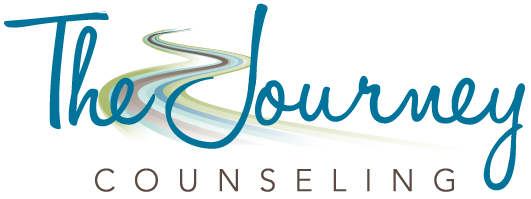A few years ago, I encountered a healing journey of my own at a caliber that I had never before experienced. I believed that I was pretty "woke" about my own trauma and wounds and fairly at peace with my past. Here's the sticky point--I was aware and accepting, but the caveat that held me back in my pain (more than I had been aware of) was that I had never really grieved nor allowed myself to FEEL the deep and nuanced pain of the trauma and injustices I had experienced.
Anyone who says, you should just move on and forgive…I have a couple thoughts:
First, ignoring things, or pushing them under the rug, does not make the painful realities of what we have expereinced go away. Instead of it being a proverbial elephant in the room, we just add obstacles that will continue to trip us up until we do finally face it and have a full encounter with it. The pain doesn’t disappear, it’s just literally, piled up underneath a rug. Maybe that’s why I’ve twisted my ankle so many times in my life? :)
Secondly, I actually did an intensive workshop/ bible study on forgiveness around the same time that some of these wounds really began to open up. It was an exercise in self care and healing like no other--grieving, really looking at wounds and their effects, crying big tears, sitting with the little girl that experienced those wounds, etc. etc. I did a lot of checks on my attitude towards the people involved, the effects that the wounds had on me (and still play out my life), and my problem wasn't and isn't that I have deeply held bitterness that makes me hate those people. I actaully love those people. My problem is that I had/ have too much compassion. I explained bad behavior away and allowed those people to continue to hurt me over and over again. I gave people a pass that didn't really deserve one. Giving those passes, or explaining away others' bad behavior, deepened my pain by denying the reality of each situation. Excusing others' words and behavior was a betrayal of myself and a denial of the pain I felt.
My therapist said to me when this all came to a head, "Would you work this hard to make it work with anyone else?" This phrase radically woke me up! The answer was an emphatic, "NO!!!"
So, part of this healing journey is to accept the pain, sit in it, acknowledge it, and to NOT let the excuses and "yeah, buts" diminish my experience. So, I've been writing, journaling, listing things. It's been eye opening to see what I hid, or denied, for so long. Here's a piece of that healing:
I’ve had to distance myself from those toxic people. Albert Einstein has been long attributed for saying, “Insanity is doing the same thing over and over again and expecting different results.” The reality is, I couldn’t stay in the same kind of relationship with the people who didn’t care to shift behaviors that repeatedly hurt those around them. I had for years (and years and years) in a myriad of differenty ways (because I believed if I just said it in the right way, it might finally click) asked for things to change, for interactions to look differently, and to implement boundaries so that I could navigate the challenging relationships with less choas. Ultimatley, I found that I had been tyring to control and predict behaviors to try to bring more peace. What I thought was being mature and having good boundaries, really just led to more striving, more jumping through hoops, more walking on eggshells—more chaos. It was making me sick. I had to make changes, and since I can’t control what others do, I had to make drastic changes to what I was doing.
During that time, I deep dove into several of Lysa Terkuerst’s books: It’s Not Supposed to Be This Way, Good Boundaries And Goodbyes, and Forgiving What You Can’t Forget to name a few. She so eloquently shares her own vulnerable circumstances, and invites us to do the same, all while connected to reality!
In Good Boundaries and Goodbyes, she states, “[Peoples’] unwillingness to address isssues driving their behaviors is their choice. You cannot force people to do what they are not willing to do. You don’t need to fight it. Agree with it and accept it. Grieve someone’s refusal to keep growing, but don’t beg them to see your boundaries as a good thing” (p. 86). She speaks about giving these people limited access to your heart because they are unwilling (or unable) to hold the responsibility of caring for your heart with the importance it deserves.
Her words from Forgiving What You Can’t Forget, however, were the most poignant and necessary for me to hear. So validating to me! Whenever that little voice in my head creeps in and says, You’re being mean, or You’re not being a very good Christian, I reread these lines:
“When you empty all your emotioanl, physical, finanacial, or relational resources to help another person who doesn’t want to be helped, you will become more and more unhealthy in the process. The more you allow their actions to cost you, the greater the debt will be that you eventually have to forgive. The situation has already cost you enough…It truly is one of the most heartbreaking moments of anyone’s life when they have to release a loved on to the consequences of their own choices. But it’s also the only chance that either of you have to get any better” (p. 124).
So, here’s to embracing healthy, reciprocal, nurturing, albiet imperfect relationships! Here’s to healing, growing, maturing! Here’s to doing our work and not taking responsibility for another adults’ part! Here’s to taking steps to be the best version of ourselves because that is who we were created to be in Christ Jesus!


